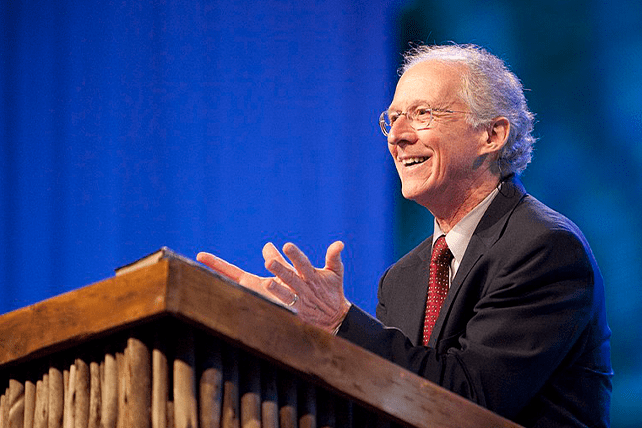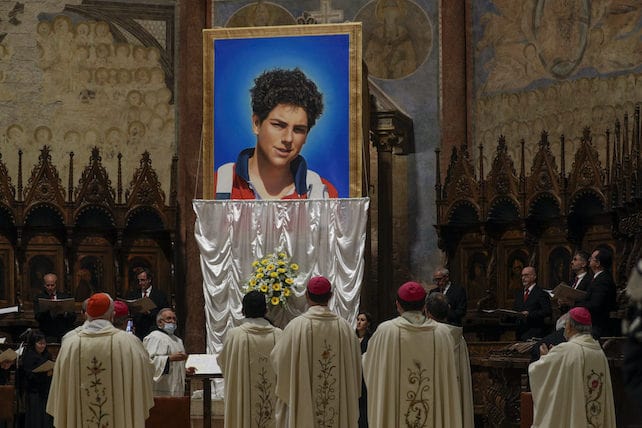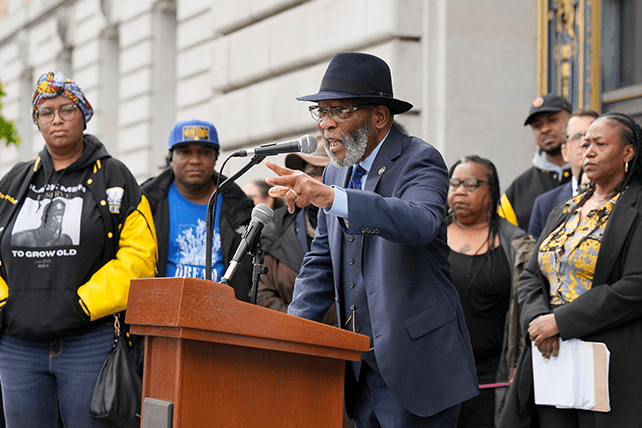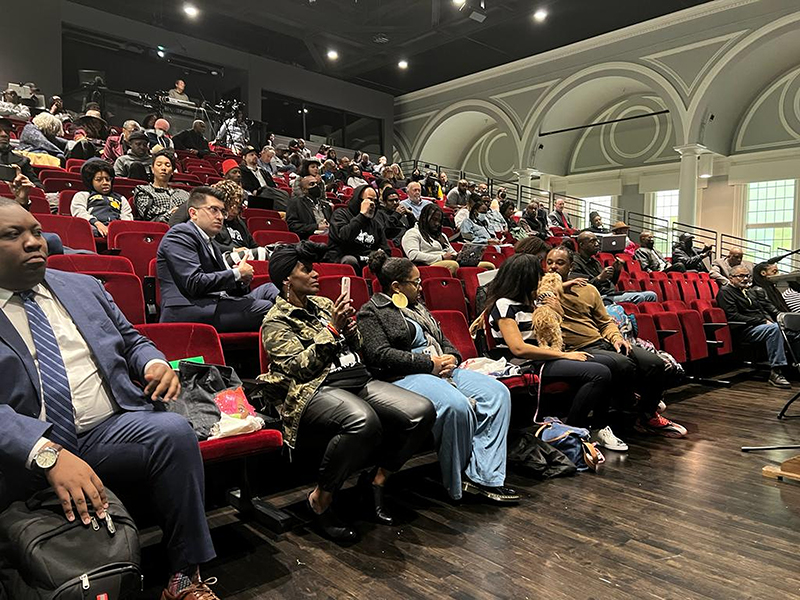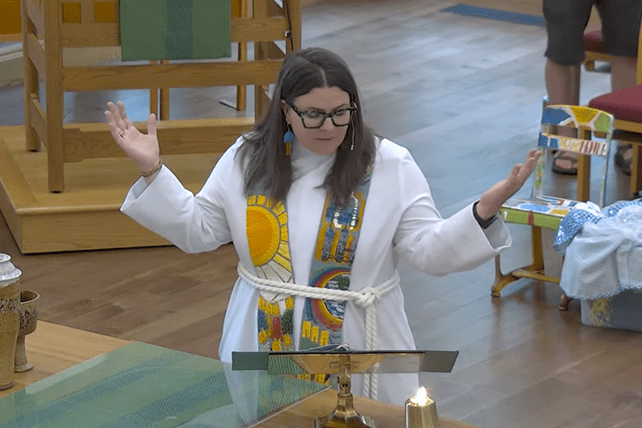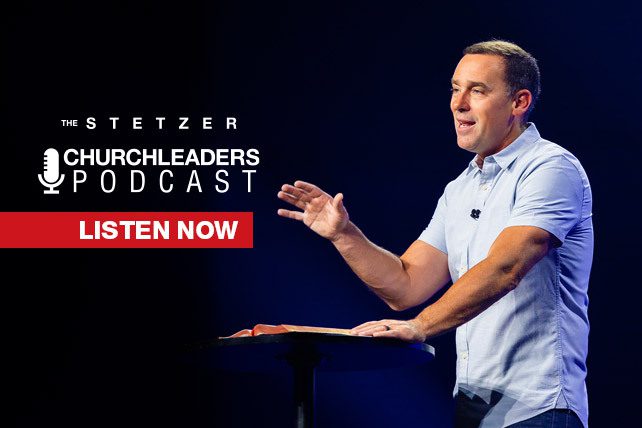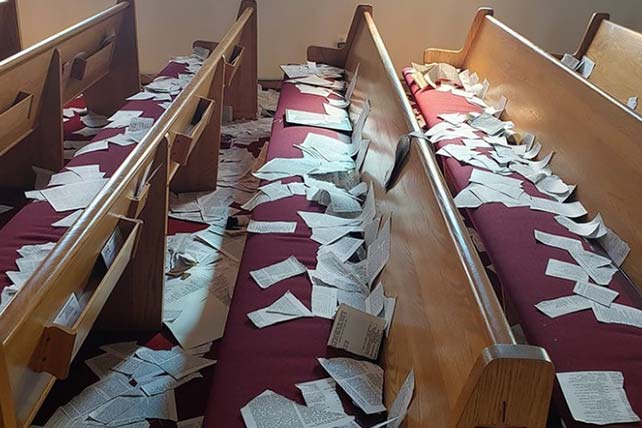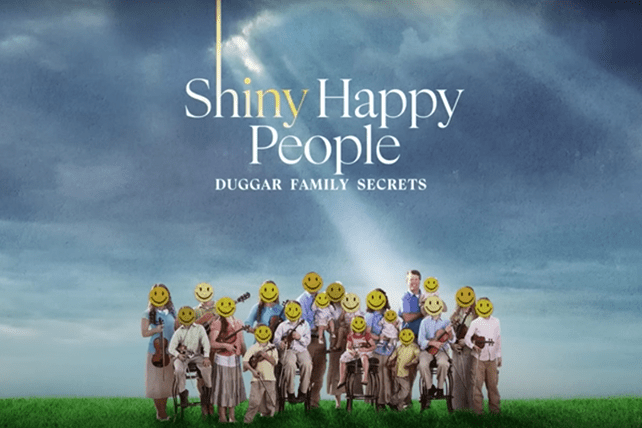(RNS) — The Rev. Jerome Jones Sr. is shocked by two things: the extensive vandalism that took place in his church building in Maryland’s capital in early June and the outpouring of support Fowler United Methodist Church has received in the aftermath.
On June 8, the red-carpeted sanctuary of the historically Black church was turned into a debris-filled space, with items once sacred ripped apart and an estimated $100,000 in damage.
“Nothing but paper — it looked like snow around our whole entire sanctuary,” said Jones of pages that were torn from Bibles and from hymnals that had been in the pews, whose upholstery was ripped when a wooden cross was torn down and tossed onto them.
“When we do our offering, we always lift our hands towards the cross for God to receive our offering,” explained the pastor since 2021 of the Annapolis church founded in 1871.
RELATED: Officials Investigate Vandalism, Fires at Maryland Churches
In recent weeks, congregants had to rethink that longtime tradition: “I told them the cross is in their hearts.”
Marc Limansky, a spokesperson for the Anne Arundel County Police Department, said police are investigating the vandalism and burglary at the church in what is considered by law to be a hate crime. As of midday Tuesday (June 27), there had been no arrests in the case.
“It’s just a violation of sanctity,” Limansky said of the incident, described in a news release as “significant damage” to the church’s interior. “I know they’re working hard on it.”
There have been other recent incidents in the area, including an attempted robbery at the Navy Federal Credit Union across the street on June 2, vandalism of a “Black Lives Matter” sign at a Presbyterian church on June 13 and the stealing of “five rainbow-colored plastic hearts from around an LGBTQ+ sign” at the same church in May. A suspect has been charged in the latter case.
“There’s nothing to indicate these cases are related; however, detectives are not ruling anything out,” Limansky said.
The destruction at the church left some senior congregants fearful to attend the first Sunday after the incident, said Jones, but some returned in subsequent weeks after virtually watching the sermon he preached on Job, the biblical character known for dealing with trials in his life.
“We as believers, we can hold onto fear or we can hold onto faith,” Jones said, summarizing that sermon. “Fear will grip us and keep us in place, but faith will always move us closer to God and if we want to continue to move forward to be a pillar in the community, we have to continue to move toward God.”
The church had television screens to help older parishioners better see the order of service since their limited vision made handheld programs hard to read. Those screens — along with one TV that was still in its box — were all damaged, along with all the cords to the church’s microphones that were cut.
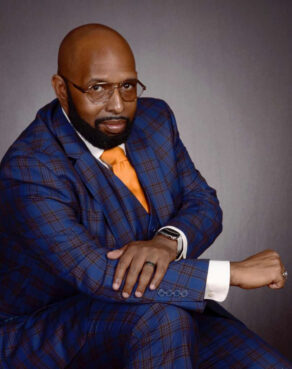
The Rev. Jerome Jones Sr. Courtesy photo
The damage extended to Jones’ office, where his academic degrees were broken out of their frames and the glass on a picture including images of the Rev. Martin Luther King Jr. and Malcolm X was shattered.
The church typically had a Christian flag and an American flag on either side of the front of its sanctuary.
“They laid the Christian flag down and they had the American flag pointing up on the podium,” said Jones.
Images provided by the church show the church’s sign outside was also vandalized, with most of its letters on the ground and “Rev. Jerom” still in place.
In the weeks since the attack, Fowler United Methodist, which is working with its insurance company, has received thousands of dollars in donations as well as in-kind gifts to replace damaged items, including a speaker system, Bibles and hymnals.
The Rev. Ben Rigsby, a pastor of The Gathering Faith Community, said his United Methodist congregation decided to donate dozens of hymnals to Jones’ church.
RELATED: Christian Broadcasting Network Towers Vandalized
“They were still cleaning up the mess and the choir was rehearsing for Sunday when I arrived,” said the pastor of the church in Hanover, about half an hour’s drive away. “Their resilience was inspiring and we are glad we could help keep the music going.”





 What do you consider a waste of time?
What do you consider a waste of time?
